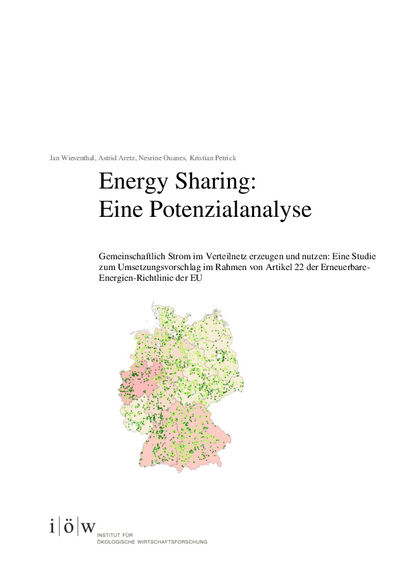Energy Sharing: A Potential Analysis Joint generation and use of electricity in the distribution grid: A study on the implementation proposal under Article 22 of the EU Renewable Energy Directive
In order to achieve the desired climate protection goals for Germany, the Federal Government must get a lot off the ground very quickly. This required speed in the implementation of the energy transition can only be achieved with the involvement and participation of citizens in order to gain acceptance for the changes on the one hand, but also to achieve necessary investments from the private sector. How such energy sharing can be designed is described by the Alliance for Citizen Energy (BBEn) in a concept paper. On this basis, the Institute for Ecological Economy Research (IÖW) has now developed this potential study for energy sharing on behalf of the BBEn.
This shows that the potential for energy sharing is enormous: More than 90% of all households in Germany could be supplied with discounted energy-sharing electricity. If it is assumed that members of the newly formed renewable energy communities, as proposed in the BBEn concept, contribute at least twelve percent of the investment costs of their plants, this results in investments of 6.5 to 12.8 billion euros. On average, each member would be involved in the investments themselves with around 100 to 200 euros. In addition, it has been shown that consumption-based energy generation can have a relieving effect on the power grids – especially if an incentive for a load shift is created, i.e. that the green electricity is consumed above all at the times when the renewable energy plants generate it.
The European Union already anchored energy sharing in the Renewable Energy Directive (Article 22) in 2019 with a transposition deadline of mid-2021. The new federal government has logically written the implementation of energy sharing into the coalition agreement. The regulatory framework must be created now so that renewable energy communities can form and operate economically.



